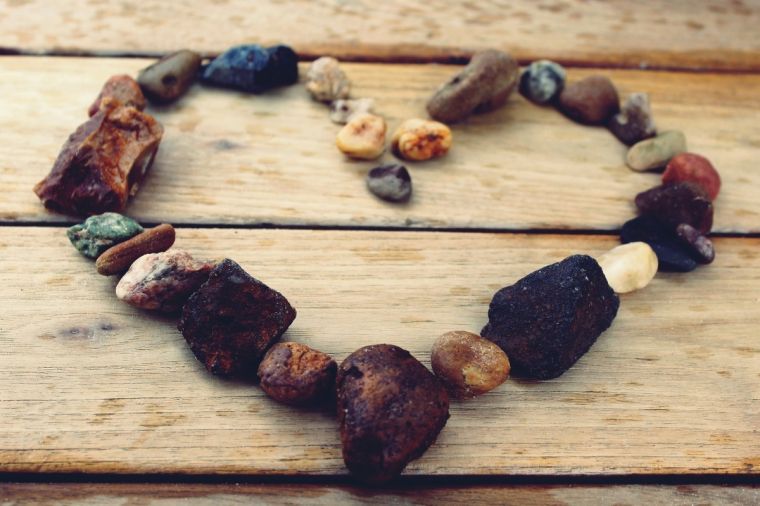The one tiny word that could transform your relationship

Are you already guessing what it is? Well, it isn't "sorry" – although that can be a very useful word to use when you're in the wrong, have made a mistake or have hurt your husband or wife.
It isn't "no", either, although that can be very handy, too – especially for those of us who don't use it enough or are serial people pleasers.
And it isn't "yes" – although plenty of us could do with exercising that word more, especially if we have a tendency to hold back or be lazy in our relationship.
The word I actually want to focus on is the word "us", or it could even be the word "we".
The temptation, especially during conflict, is to use the pronouns "I" or "you" and often in a way that puts the "I" in the right and the "you" in the wrong!
For example, you might say: "I am doing all the clearing up and you aren't doing anything to help." But when we use "we" or even "us" – we replace confrontation with collaboration.
We demonstrate that we are on the same side and that we want to pull together as a team. "Our house is looking such a mess, where shall we start with the clearing up?"
There was a great article by Judith and Richard Glaser in the Harvard Business Review entitled The Neurochemistry of Positive Conversations.
They did some research in workplaces and looked at the various behaviours of managers and the reaction that those behaviours illicited from staff.
They discovered that when the boss used the word "we", listened well and allowed people to do things their way, the recipient was much more likely to experience positive feelings, demonstrate trust and be willing to collaborate.
Conversely, if they were nagged, criticised or ordered about – staff were likely to experience stress, mistrust and would perceive more negativity and judgement than actually existed.
I think the same is true in most relationships, and perhaps nowhere more so than in a marriage.
After all, when we stood at the altar and made our vows to each other, "two became one". We chose to become an "us". Some of us worry about being smothered in a relationship or of losing our identity, but being a couple isn't about being dependent or giving up who you are. And it isn't about being independent and just doing whatever you want, either. It is about being inter-dependent.
I've seen that at work in my own relationship. My husband and I, like any other couple, have experienced some tough times. We suffered a miscarriage and went through years of fertility treatment before our son was born. We also lost five jobs between us in the space of six months, which was both a scary and exciting time.
What helped us in those and other difficult times was pulling together. We looked at what "we" could do.
We supported each other and we found ways to laugh. We decided to think in terms of what was best for our relationship. When we lost the jobs, we decided to take stock and re-evaluate our situation. We took out a blank piece of paper and talked together about what we wanted from life, what we felt God was calling us to do and where we could live in order to make that happen.
We found a solution that worked for our family and six months later we moved to Bristol. In a relationship, we form a "we" or "us" and how we behave and respond in that relationship will either help to protect, build and nurture that "us" or it will hurt, harm and ultimately destroy it.
Why not try it this week? Instead of telling your partner what he or she can do better, why not ask: "how can we improve this situation?" It is a tiny change but it could make a big difference.
Sarah Abell is a relationships coach and the founder of Naked Hedgehogs. Her passion is helping individuals and couples live, love and lead authentically. If you want to find out how authentic you really are – you can take her free quiz at www.nakedhedgehogs.com











